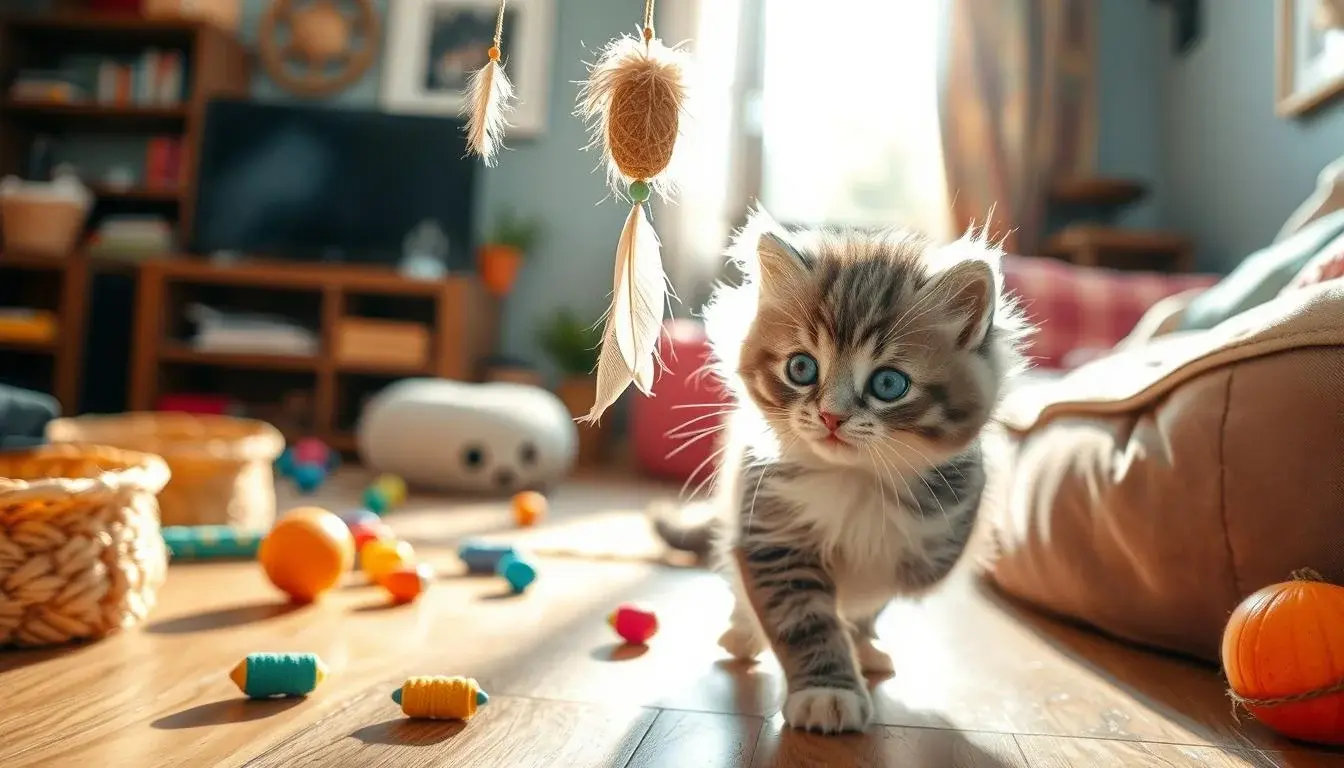Kitten= Cat Care Tips: Raising a Happy and Healthy Feline
Bringing home a new kitten is an exciting and joyful experience. However, ensuring that your new companion grows up healthy and happy requires a good understanding of their needs. Kitten
= cat is a delightful, playful, and loving feline, but they require proper care to thrive. From creating a safe environment at home to providing the right nutrition and healthcare, there are several essential steps that every cat owner must take.
In this comprehensive guide, we will walk you through everything you need to know about Kitten
= cat care. Whether you’re a first-time cat owner or looking to brush up on your knowledge, this guide covers all aspects, from preparing your home to understanding your kitten’s behavior and health.
Understanding Kitten
= Cat
Before we delve into care tips, it’s important to understand the characteristics of Kitten
= cat. Kittens, in general, are known for their curious and playful nature, and Kitten
= is no different. Their boundless energy, agility, and eagerness to explore their surroundings can be both endearing and challenging for new owners. As they grow, their behavior and personality develop rapidly, and being attentive to their needs at each stage is key to ensuring a happy and well-adjusted adult cat.
Here are some traits that are common in Kitten
= cats:
- High Energy Levels: Expect bursts of energy, playfulness, and curiosity, especially during the early months.
- Affectionate Personality: Most Kitten
= cats enjoy being around people and forming strong bonds with their owners.
- Strong Sense of Independence: While affectionate, these cats can also be independent, enjoying time alone but often seeking interaction when they feel like it.
Understanding these traits can help you create an environment that caters to their natural instincts and needs.
Preparing Your Home for Kitten
= Cat
Before bringing your kitten home, it is essential to prepare your living space. A kitten-friendly environment will ensure their safety while allowing them the freedom to explore and grow. Here’s a step-by-step guide to kitten-proofing your home.
Kitten Proofing Checklist
- Secure Electrical Cords and Outlets: Kittens love to chew, and dangling cords may seem like toys. Secure any exposed wires and cover electrical outlets to avoid accidents.
- Remove Small Objects: Small items like rubber bands, paper clips, or even small toys can become choking hazards if swallowed. Be mindful of where you place small objects, and keep them out of reach.
- Lock Away Hazardous Materials: Cleaning supplies, medications, and chemicals should be stored in a secure location, as even a small amount of exposure can be harmful.
- Create a Cozy Space: Kittens need a comfortable and safe place to rest. Provide a soft bed in a quiet corner where they can retreat when they need downtime.
- Set Up the Litter Box: Place the litter box in a quiet, accessible location. Kittens often need to be shown where it is, especially when they first arrive at their new home.
- Provide Scratching Posts and Toys: To avoid destructive behavior like scratching furniture, provide scratching posts. Interactive toys will help keep your kitten engaged and mentally stimulated.
Kitten-proofing is essential not only for their safety but also for creating an environment that supports their natural tendencies to explore and play.
Kitten Nutrition
A proper diet is critical for the development of Kitten
= cat. During their first year, kittens grow at a rapid rate, and their nutritional needs differ greatly from those of adult cats. To support their growth, it’s important to choose the right food and establish a feeding routine that meets their specific needs.
Choosing the Right Food
Kittens require a diet that is rich in protein and fat, as these nutrients fuel their rapid growth and energy needs. Most veterinarians recommend feeding high-quality, commercially available kitten food that is specifically formulated to meet the needs of growing cats. Avoid feeding them adult cat food, as it lacks the necessary nutrients for proper growth.
Here’s a breakdown of what to look for when choosing food:
- Protein: Kittens need a diet that contains 30-40% protein to support muscle development.
- Fats: Essential fatty acids, such as omega-3 and omega-6, are crucial for brain development and a healthy coat.
- Vitamins and Minerals: Kittens need calcium and phosphorus for strong bones and teeth, as well as vitamins such as A, D, and E to support overall health.
Feeding Schedule
Kittens need to be fed more frequently than adult cats due to their smaller stomachs and higher energy needs. A general feeding schedule could look like this:
- Up to 6 months: Feed your kitten four times a day.
- 6 months to 1 year: Reduce feeding to three times a day.
- After 1 year: You can begin feeding twice a day as they transition to adult cat food.
It’s important to follow portion recommendations on the food packaging or consult with your vet to avoid overfeeding or underfeeding your kitten.
Health and Wellness
Ensuring the health and well-being of Kitten
= cat starts with regular veterinary visits and preventive care. Early vaccinations, parasite control, and regular check-ups are essential to giving your kitten the best start in life.
Vaccinations and Vet Visits
Kittens are susceptible to a variety of diseases that can be prevented with proper vaccination. Vaccinations should begin at about 6-8 weeks of age, with follow-up booster shots scheduled every few weeks until they reach about 16 weeks of age. Common vaccinations include:
- Feline Distemper (FVRCP): This is a core vaccine that protects against several serious diseases, including feline herpesvirus, calicivirus, and panleukopenia.
- Rabies: Rabies vaccinations are required by law in many areas and protect against a deadly virus that affects the central nervous system.
- Feline Leukemia Virus (FeLV): This vaccine is recommended for kittens who may come into contact with other cats, as FeLV can be transmitted through saliva and close contact.
Regular vet visits also include routine check-ups to monitor your kitten’s weight, development, and overall health. Flea and parasite prevention should also be discussed with your veterinarian, as kittens are particularly vulnerable to these pests.
Grooming Your Kitten
Even though kittens often groom themselves, it’s important for owners to establish a grooming routine early. This not only helps keep your kitten clean and healthy but also helps you bond with them.
- Brushing: Even if your Kitten
= cat has short hair, brushing helps reduce shedding and prevents matting in long-haired breeds.
- Nail Trimming: Regularly trim your kitten’s nails to prevent them from becoming too sharp or causing damage to furniture (or you!). Use special cat nail clippers and trim only the tips.
- Bathing: While most kittens will keep themselves clean, occasional baths may be necessary if they get particularly dirty. Be sure to use a gentle, kitten-safe shampoo and keep the bath time as stress-free as possible.
Kitten Behavior and Training
Kittens are highly intelligent and can learn quickly with the right guidance. Training your Kitten
= cat not only makes your life easier but also helps your kitten develop good habits from an early age.
Litter Box Training
Fortunately, most kittens are naturally inclined to use a litter box. To ensure success, place the litter box in a quiet, easy-to-access location and keep it clean. When you first bring your kitten home, show them the litter box, and they’ll likely start using it right away. If they have an accident, clean the area thoroughly to remove any lingering odor that might encourage them to return to that spot.
Positive Reinforcement Training
Kittens respond well to positive reinforcement, which means rewarding them when they do something you want to encourage, such as using the scratching post instead of the furniture or behaving calmly during grooming sessions. Treats, praise, and gentle petting are all effective ways to reward good behavior.
Play and Enrichment
Play is not just a fun activity for kittens – it’s also essential for their mental and physical development. Kittens are naturally active, and providing them with stimulating toys and activities will help keep them healthy and prevent boredom.
Choosing the Right Toys
Not all toys are created equal, and some are better suited to kittens than others. Interactive toys, such as feather wands, laser pointers, and puzzle feeders, are great for keeping your kitten engaged. Toys that mimic prey, such as small balls or stuffed mice, also help satisfy your kitten’s natural hunting instincts.
Bonding with Your Kitten
Building a strong bond with your kitten is one of the most rewarding parts of pet ownership. Spend quality time with your kitten every day, engaging them in interactive play and providing positive reinforcement for good behavior. The more you invest in building your relationship with your kitten, the more affectionate and trusting they’ll become as they grow.
Managing Common Kitten Issues
As adorable as they are, kittens can sometimes display behaviors that need to be addressed, such as biting or scratching. Understanding why these behaviors happen and how to manage them will help you guide your kitten into becoming a well-behaved adult cat.
Biting and Scratching
Kittens often bite and scratch as part of their play. While this behavior is normal, it’s important to teach them not to bite or scratch people. If your kitten bites or scratches during play, immediately stop the interaction and redirect their attention to a toy. Never punish your kitten physically, as this can lead to fear and anxiety.
Nighttime Activity
Kittens are often more active at night, which can disrupt your sleep. To help manage nighttime activity, make sure your kitten gets plenty of exercise and play during the day. You can also create a quiet, dark space for them to rest at night, away from your sleeping area.
Conclusion
Caring for a Kitten
= cat is a rewarding experience that requires attention, love, and dedication. From preparing your home to ensuring proper nutrition, health, and behavioral training, there are many aspects to kitten care that contribute to raising a happy and healthy adult cat. By following the tips outlined in this guide, you’ll be well on your way to becoming the best kitten parent you can be. With patience and love, your Kitten
= cat will grow into a cherished member of your family for years to come.






